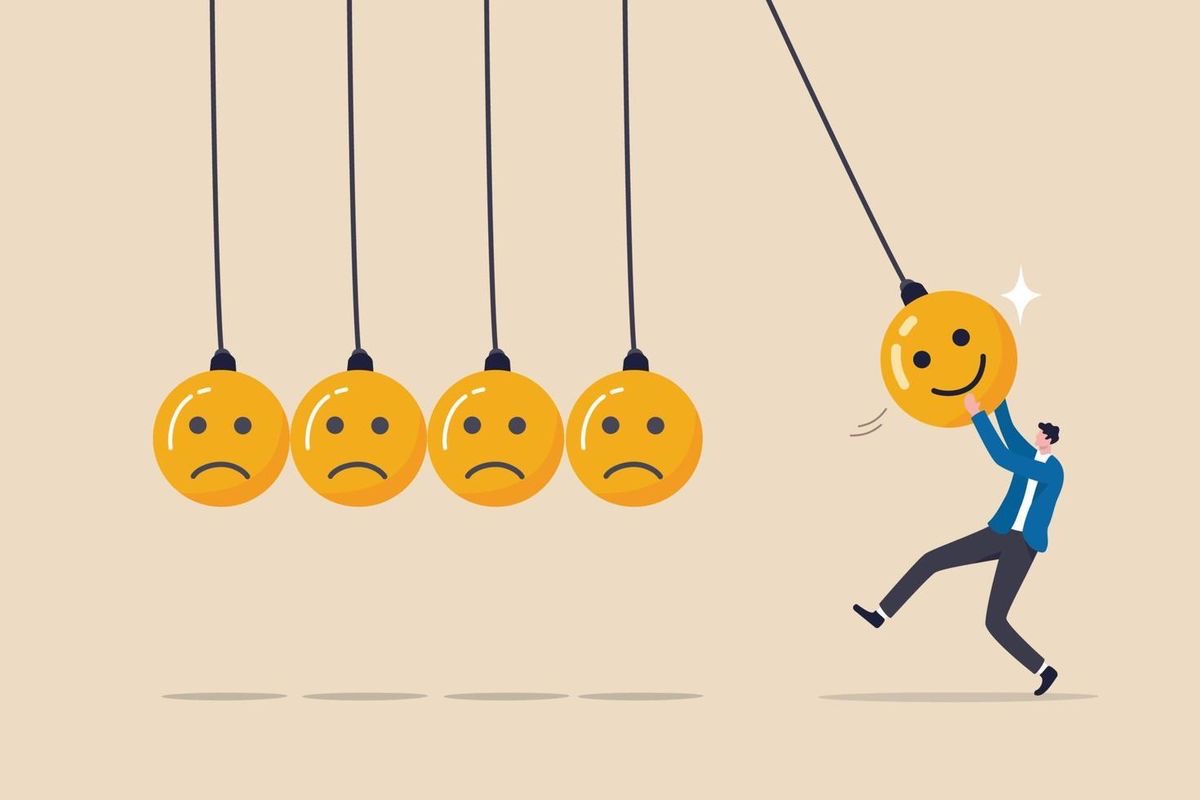Being more positive can help you feel better. It can help you bounce back faster from tough situations or stressful events. Positive thinking helps people see life in a better way, even when things are hard. You can learn from optimistic people and how they handle challenges. Their ways can also teach you a few things about making decisions and living life.
Experts in mental health explain that thinking positively is important. It is essential because it can help to improve your mood and reduce stress. They also share simple ways you can start being more positive in your daily life. When you practice these seven tips, you can begin your own journey to thinking more positively.
1. Optimists Understand the Importance of a Positive Outlook
Setting up routines when we try something new, like a different workout or learning a new language, can help us get better. But, when it comes to mental and emotional goals, like becoming more positive or improving our mindset, we often give up before we even start.

Just like anything else, being optimistic is a habit that we can build by creating good habits every day. David A. Yadush, a professional at BetterHelp, explained this. He said people who stay positive believe good things will happen. Having a positive attitude is linked to many benefits. These benefits include better coping skills, better physical health, less stress, and more determination when working toward goals.
2. Optimists Allow Themselves to Feel Everything
There is a significant difference between being a generally positive person and pretending everything is always perfect.

Toxic positivity is when you ignore or deny negative feelings. This can be harmful. It does not let you experience all emotions, both good and bad. Being optimistic is not about always being happy or pretending everything is fine. It is about allowing yourself to feel everything.
According to Olivia Howell from the Fresh Starts Registry, optimism means giving yourself permission to feel all your emotions. It also means accepting support from others when you need it. Optimistic people often face less challenges by being honest with themselves about what they need. They also always hold hope for the future. Optimism means believing things can get better, even during tough times.
3. Optimists Stay in the Moment
If you have ever felt anxious, you will know that worrying about things that might happen in the future, like a loved one getting sick or losing your job, can make you feel overwhelmed. One major part of being positive is learning to live in the present moment.

Gabriella Giachin, a licensed social worker, explains that optimism is about focusing on the present and knowing that it is the only time you can control. You can only control what you are presently experiencing.
Optimism means handling the situation you are in now or learning what you need to deal with it. If you start to feel anxious or negative, try to focus on your surroundings. Focus on what you can see, hear, or smell at that moment. Using your senses can help you stay grounded and prevent negative thoughts from taking over.
ALSO READ: Raise Your Little Ones, Not Stress Levels with these 11 Parenting Tricks
4. Optimists Focus on Their Strengths and Value, Not Just Failures
There are two things that are true, one is you have amazing skills. Second thing is, there are times when you will fail.

There is something that makes optimistic people different from pessimistic people. According to life coach Marla J. Albertie, optimistic people choose to focus on their strengths or their weaknesses. Optimistic people see failure as something to learn from, not a total loss.
These people believe learning is part of progress. “They use their mistakes to reflect, grow, and get better,” Albertie explains. “They feel good about themselves and trust that they can handle challenges and reach their goals.”
So, if you mess up on a presentation or a DIY project does not turn out the way you wanted it to, don’t feel down for not being perfect. In order to be more positive, start by writing down the things you did well, and then think about how you can improve in other areas that need it. This might help you perform even better next time.
5. Optimists Use Positive Thinking to Reframe Tough Situations
Think about the last time you had a frustrating argument or when you could not agree with someone about an important decision. In these stressful moments, it is easy to think the worst or get stuck focusing on the negative aspects.

Research shows that using “positive reframing” can be useful, says Janis Whitlock from The Jed Foundation. When faced with challenges, try to find a way to see something positive in the situation, or at least find a way to think about it that’s not so negative.
“Think about how the situation might not be as bad as you think it is; it could be giving you new insight or experience,” Whitlock says. “It is important to allow yourself to feel any emotion that comes up during tough times. This is because, at the end of the day, what really matters is what you do afterward. Do you stay stuck feeling angry or upset, or can you start to see that there might be something valuable in the situation if you think about it differently?”
6. They Practice Positive Self-Talk
Positive self-talk means thinking kind things about yourself and your abilities. Research shows that positive self-talk helps people control negative thoughts and feelings.

Instead of saying things like “I can’t do this,” you should try saying positive sentences with your name in them. It can be more helpful to use your name or words like “you” when talking to yourself. For example, instead of saying, “I can’t handle this,” you should say, “You can handle this!” Using your name or “you” creates some distance between you and the stress. This makes it easier to stay calm and think more positively.
Whenever you are struggling, try to talk to yourself the way you would talk to a friend. If you would not say something hurtful to a friend, then never say it to yourself. You can also use positive statements every day to help boost your mood.
7. Optimists Know How and When to Say No
Saying “no” might seem negative, but it can actually help you stay positive. Sometimes, we say “yes” to things that make us unhappy or drain our energy. Things like agreeing to too many tasks.

Saying “no” to these things can actually make you feel more at peace and happy. It is important to do things that make you feel good and take care of yourself. Of course, some responsibilities, like family duties, might require effort, but if something is not helping you feel better, it is okay to say no.
Ultimately, being optimistic is not rocket science. It involves conciously choosing the good over the bad, and it will improve your mental health and overall well-being.
